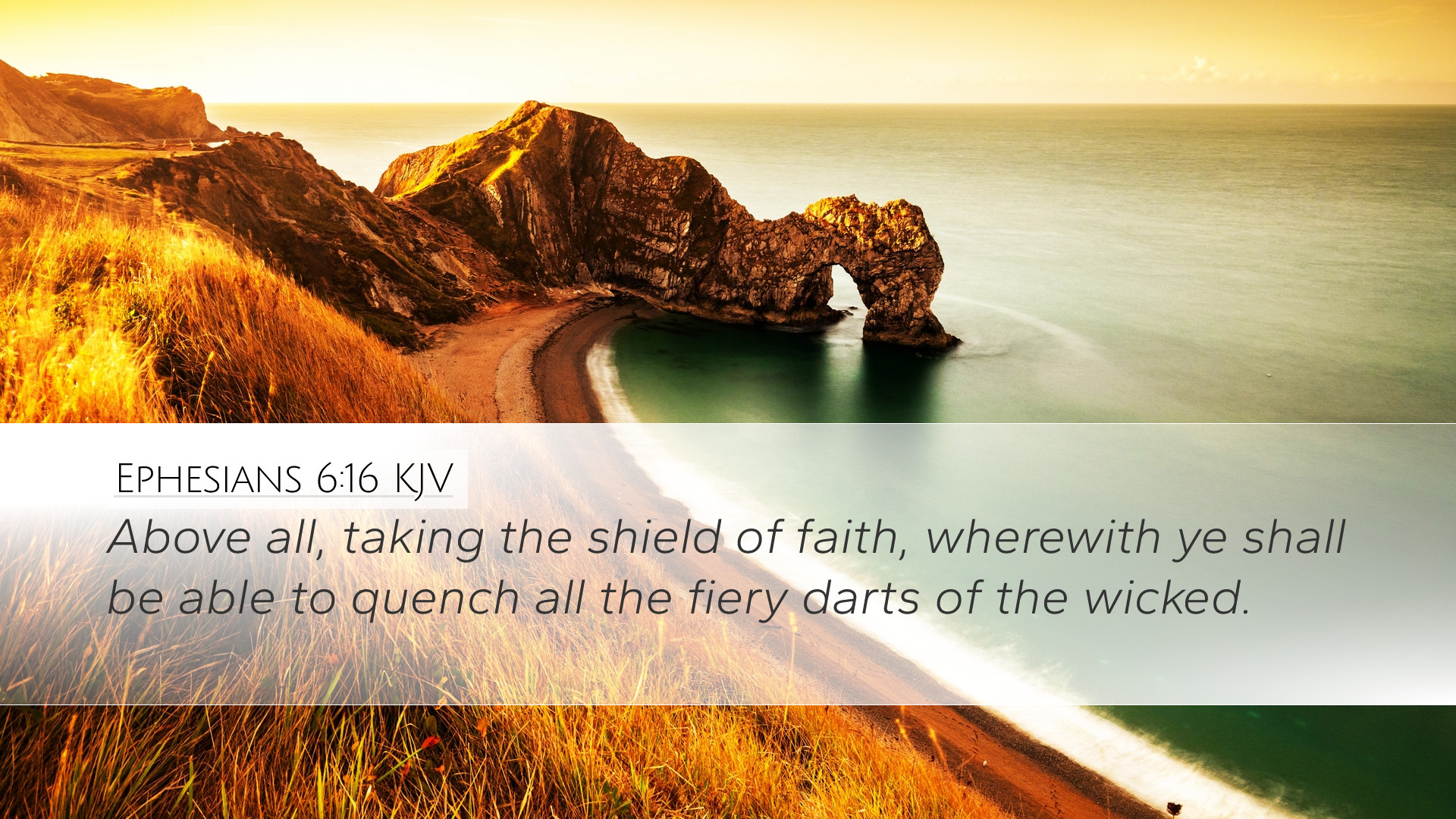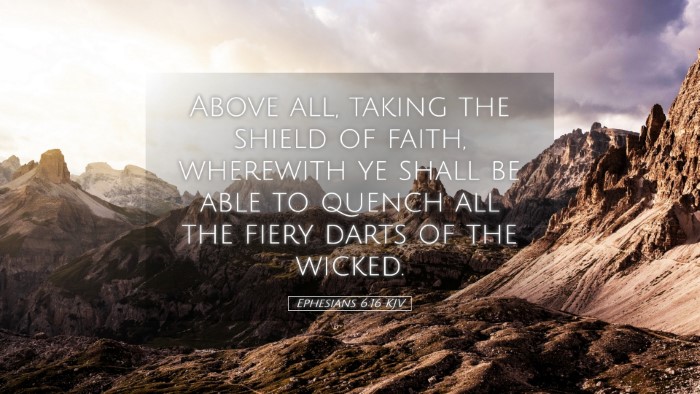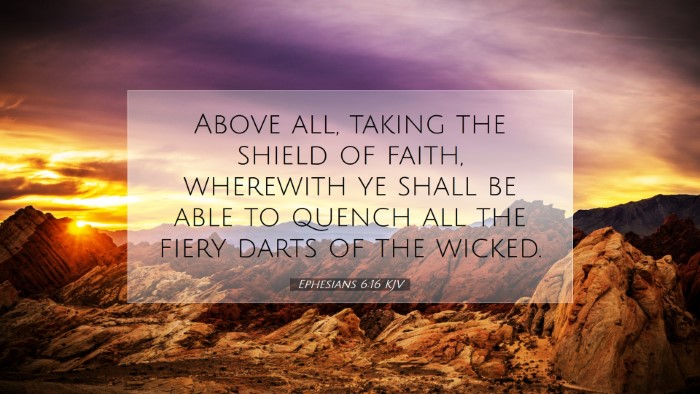Ephesians 6:16 - Commentary Summary
Ephesians 6:16 states: "Above all, taking the shield of faith, wherewith ye shall be able to quench all the fiery darts of the wicked." This verse is a vital element in the larger context of Paul's exhortation regarding the armor of God. In this commentary, we delve into the significant themes and theological implications of this verse, drawing insights from notable public domain commentaries.
The Nature of the Shield
The "shield of faith" is central to understanding the challenges Christians face. Matthew Henry emphasizes that the Roman shield was often large and designed to cover the whole body, symbolizing how faith protects believers in various spiritual battles. This idea aligns with the understanding that faith serves as a defense against doubt and despair, which often assail the believer.
The Importance of Faith
Albert Barnes elaborates on the necessity of faith as the primary shield in a believer's life. He notes that faith is not merely a passive belief but an active trust and reliance on God and His promises. This active faith allows Christians to withstand attacks from adversarial forces and remain steadfast in their beliefs.
Fiery Darts of the Wicked
The "fiery darts" represent the various temptations, doubts, and accusations hurled at believers by the enemy. Adam Clarke highlights that these darts often come in the form of sinful thoughts, discouragement, and spiritual degradation. They can incite fear, jealousy, and pride, leading away from God’s purpose.
Both Henry and Barnes reflect on the nature of these attacks, indicating that they can be overwhelming and intense but also surmountable through the proper application of faith. The reference to “fiery” implies that these are not just ordinary attacks; they are intended to cause damage and pain, similar to how arrows tipped with fire could devastate a battlefield.
The Mechanics of the Shield
Practically speaking, how does one utilize the shield of faith? According to Matthew Henry, the act of taking up the shield involves conscious choice and preparedness. This implies that believers must be intentional about their faith, actively engaging in practices that bolster their trust in God—such as prayer, meditation on Scripture, and fellowship with other believers.
The Role of Scripture and Prayer
Barnes points out that scripture serves as a foundational element for a robust faith. When believers meditate on God's Word, they arm themselves with truth that can counteract lies and temptations. Furthermore, constant prayer reinforces this shield by keeping believers connected to God’s strength and guidance.
Faith in Community
Adam Clarke suggests that faith also thrives within the community of believers. The collective faith of the church can provide encouragement and support, enhancing each individual’s shield. When individuals testify to God's faithfulness, they strengthen the faith of others and build a fortress against the enemy's onslaught.
Quenching the Darts
The assurance that the shield of faith can "quench all the fiery darts" is a powerful promise. It teaches that while believers will face attacks, they are equipped with divine armor that can extinguish these threats. Henry underscores that this does not imply the absence of struggle but affirms that faith can mitigate the destructive power of these fiery trials.
Theological Implications
Theologically, Ephesians 6:16 reinforces the concept of spiritual warfare. Barnes articulates that believers are not passive participants but are called to actively engage in the battle against spiritual forces. The imagery of armor signifies preparation and readiness, and the shield's role exemplifies how faith is both reactive (defending against attacks) and proactive (actively trusting in God's promises).
Conclusion
In summary, Ephesians 6:16 emphasizes the paramount importance of faith in the life of a believer. By understanding the shield of faith in both its protective and active dimensions, Christians can better navigate spiritual warfare. With profound insights drawn from Matthew Henry, Albert Barnes, and Adam Clarke, this verse serves as a reminder that, although believers will encounter adversities, they possess divine resources to triumph over every fiery dart aimed at their hearts and minds.


